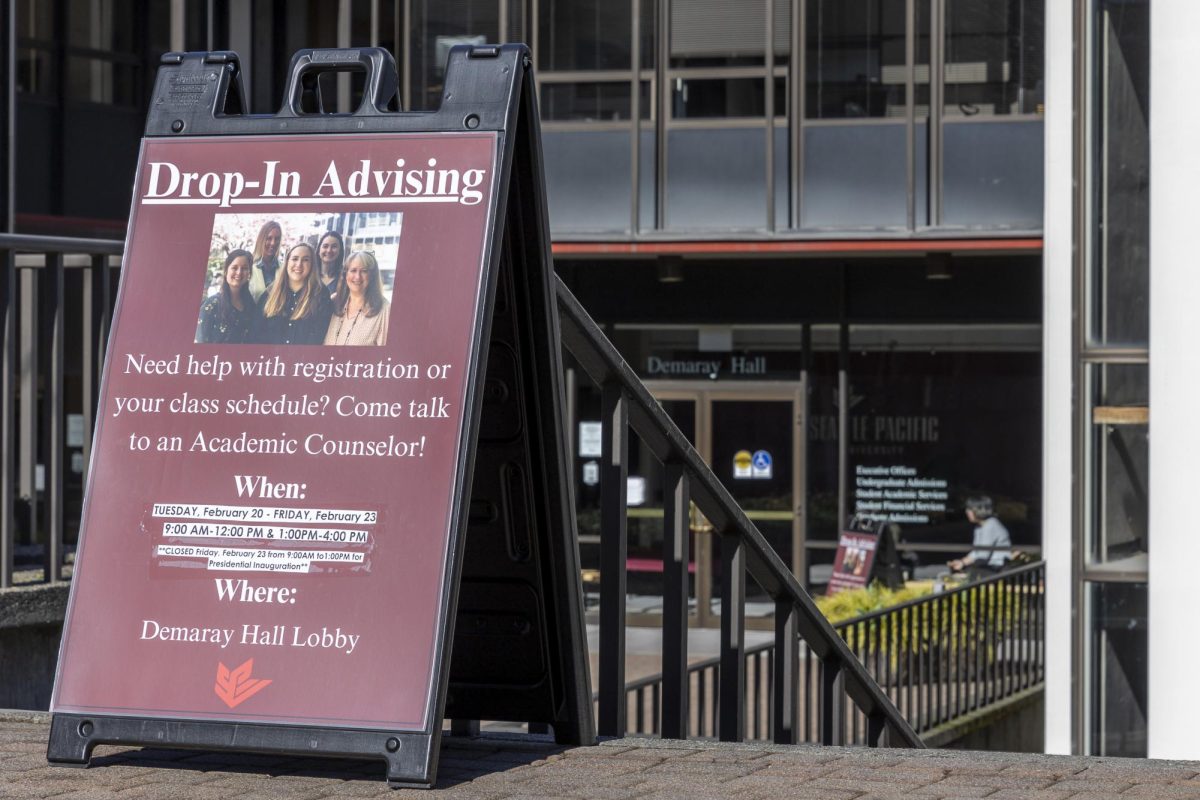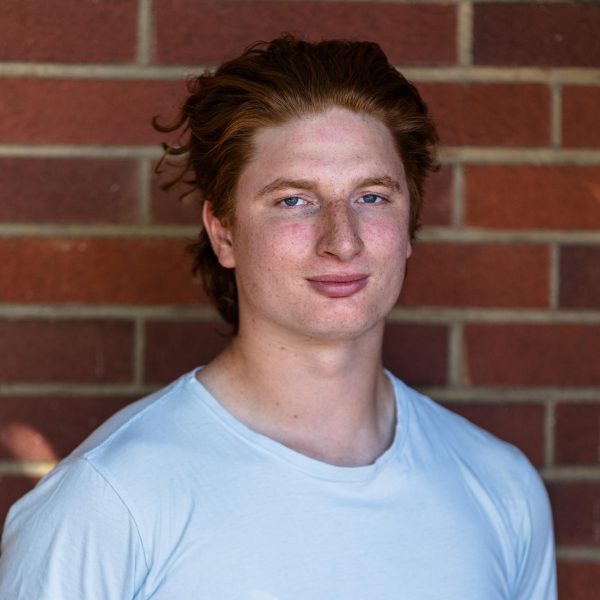
To ensure students have the best chance to complete their intended degree, Seattle Pacific University appoints each student an academic advisor upon admission. Once admitted to a major, the student is then assigned to a specific faculty advisor, to receive guidance on major-specific courses as well as general education.
Annette Rendahl, assistant director of undergraduate academic advising, expresses that within the advising system, faculty are meant to be the main source for questions and advice, with academic counselors as the net beneath, ready to catch any remaining inquiries.
“The way it’s set up is that faculty advisors should be advising on all of it,” Rendahl said. “On their major, minor and [general education requirements]. Faculty advisors are supposed to know all of those things and should be advising students holistically.”
Students often experience the opposite, having contradictory information between meetings and advisors. Allana Cook, a junior apparel merchandising major and transfer student, said she never had a consistent and helpful meeting with faculty advisors and feels left to organize her schedule without reliable administrative insight.
“For a class, we had to create a three-year course plan, and I set it all up,” Cook said. “I went in to get it checked by [my faculty advisor] and she signed off on it. The next quarter I go in to sign up for classes and she says, ‘This is completely wrong.’”
To fill a major-specific sequence of courses, senior mechanical engineering major Thomas Morton was forced to take a fifth year at SPU. After adding general education requirements to his junior-year schedule, per the advice of academic counselors, Morton was told by a faculty advisor his projected schedule was on track.
As he later found out, the schedule failed to include the required Thermodynamics series, offered only during that time.
“I initially was pretty upset,” Morton said. “The money I saved for school was intended for a four-year degree, and I wasn’t sure If I would be able to afford another year.”
Now, expecting to graduate this year, Morton reflected on steps he could have taken to prevent taking another year of undergraduate education.
“My feelings have changed slightly as I do realize it is partly my fault for not having looked at the recommended course sequence closely enough,” Morton said. “The blame is not entirely on my faculty advisor, though I do think they could have done a much better job making it clear to me that not taking this sequence would set me back a year.”
Morton suggests that faculty be required to have more concrete sequences depending on when they are offered within the academic season.
“The recommended course flow chart kind of does this, but it doesn’t make clear which classes you could slot in later, and which are essential to take the next set of classes in your major,” Morton said.
Similar to Morton’s suggestions, Cook believes that most of the issues happen because too much is being asked of faculty advisors.
“I feel like it’s a lot [put] on them to be an advisor and a teacher,” Cook said.
Regardless of the approach to reforming the current academic counseling system, it is clear among students that it could be improved.
“I don’t think it is effective at all,” Cook said. “It’s really hard to try and figure out which courses you need to take with having to go to a faculty advisor for any major-specific ones, but then having to go to an academic advisor regarding anything else.”
Rendahl explained that one aspect that presents a challenge in operating at full potential is the ratio of staff to students.
“In a perfect world, at the beginning of a student’s senior year [we] would go through and do kind of a final audit,” Rendahl said. “The challenge is just the numbers. Each counselor has around 500 to 550 students, so to do that would take a lot of time.”
Despite the apparent challenges and miscommunication, the small nature of the university invites more effective communication between students, staff and faculty regarding questions and specific advising cases. At SPU, a change or tweak in the system is an attainable solution for students.
“That’s something that we really love about SPU, is the ability of our team and faculty advisors to have this really cohesive and equal footing,” Rendahl said.


















































































Alan Marble • Apr 5, 2024 at 10:34 am
Does senior staff leadership need counseling? 40% budget cuts forcing major changes that take many by surprise would indicate that false safety from the real world within academia is a leadership problem. A poorly planned student class schedule is focusing on minutia when they should be thinking about where that student will be five and ten years later. Do you ever have that discussion? Do you see anything going on just down the hill to the south? That’s the real world and it ain’t pretty. Prepare them or face more real world “scheduling” consequences.